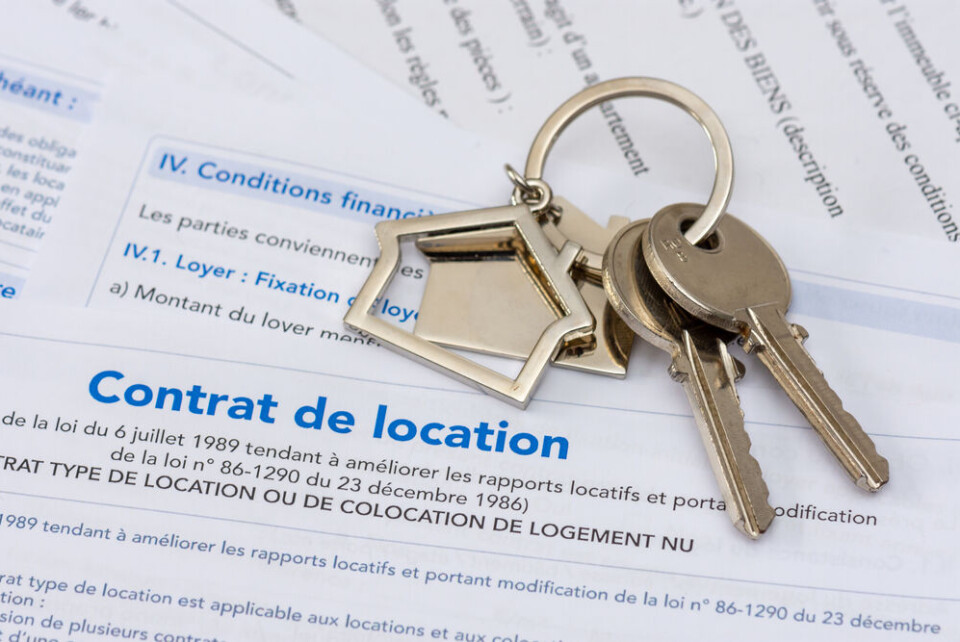-
Repayable-on-death equity release loans open again to non-EU retirees
Products have recently started being offered by bank group again after it paused them in 2019
-
Insurance denied for Britons' French hilltop home due to 'flood risk'
Underwriters decided to end cover linked to alleged proximity to water
-
How is French property faring?: Key points in latest notaire review
Number of transactions is rising year on year
French website makes rental paperwork easier for tenants and landlords
The new online platform aims to protect the interests of both parties and to cut down on fraud and the use of illegal documents

A website set up to help would-be tenants get their paperwork in order is slowly gaining traction, the team behind the government project claims.
The online platform, DossierFacile.fr, collates all the forms required by landlords or agencies when looking for a property to rent. In some places, such as Paris, the folder must be completed before prospective tenants are even allowed to book viewings.
Typically, renters are required to have proof of income three or four times higher than the rent demanded, or have a guarantor able to cover three or four monthly rents, or both. The strict rules mean many use fraudulent documents, including payslips, to convince landlords to rent to them.
It was partly to stamp out this problem that DossierFacile was launched.
Potential renters can create a government-verified digital file with their financial information, which should help to put them at the front of the queue when they hear of suitable places to rent.
Tenants still need the same forms as in a traditional dossier, but there is a standardised set of documents online, and they do not have to print out multiple forms to bring to viewings. To date, the site has created 116,000 verified files.
Arthur Hatchuel, who is heading the project, said: “After a slow start, the number of people using the service is increasing as it becomes more widely known.
“As well as being convenient, the site is useful in providing only information to estate agents and landlords that is legally required. This has helped stop abuses, such as them demanding months of bank statements, something which is actually illegal.”
Renters must upload five documents to the site: an identity card or other proof of ID; a justificatif de domicile (proof of residence); a justificatif de situation professionnelle (proof of current work situation); a justificatif de ressources (proof of income); and an avis d’imposition (tax return) from the past year.
If the would-be renter has a guarantor, either a person or an association such as the government body Action Logement, the same sort of documents are required from the guarantor, and can be added to the DossierFacile file so a landlord can see all the information together.
Getting some documents, such as a justificatif de domicile, can be difficult if you are young and living with your parents, or flat-sharing with someone else’s name on the rent papers, and the site shows what the alternatives are.

Once the documents are uploaded, agents check them before stamping them electronically, and putting them into a data file, which prospective renters can send to landlords in the form of a URL link or PDF file.
Usually, the process takes 24 hours, but agents might contact renters for further information if they find parts of the file weak.
Changes to the system of rent guarantees in France came into effect in January to protect landlords.
Called a cautionnement, the system allows many young French people to move into their first homes, with family members acting as guarantors.
The changes do away with the pro-forma paper contract that has been used for years, and which landlords complain often allows guarantors to avoid paying.
Instead, contracts are now written by the landlord in everyday language, making clear what is expected. They must outline the conditions the landlord imposes, the length of the agreement, the nature of work which might be asked to be paid for, and the maximum sum the person standing guarantee will be asked to pay, in both words and numbers.
Figures from government housing agencies show how important it is for landlords to have good guarantees – in 2019, there was an average of 4,000 queries from landlords about rent problems per month.
Related stories:
Squatters, sublets and chateaux sales: Five French property updates
Why rental prices across France are set to rise in 2022
Taxe foncière property tax in France: What exemptions exist?
























